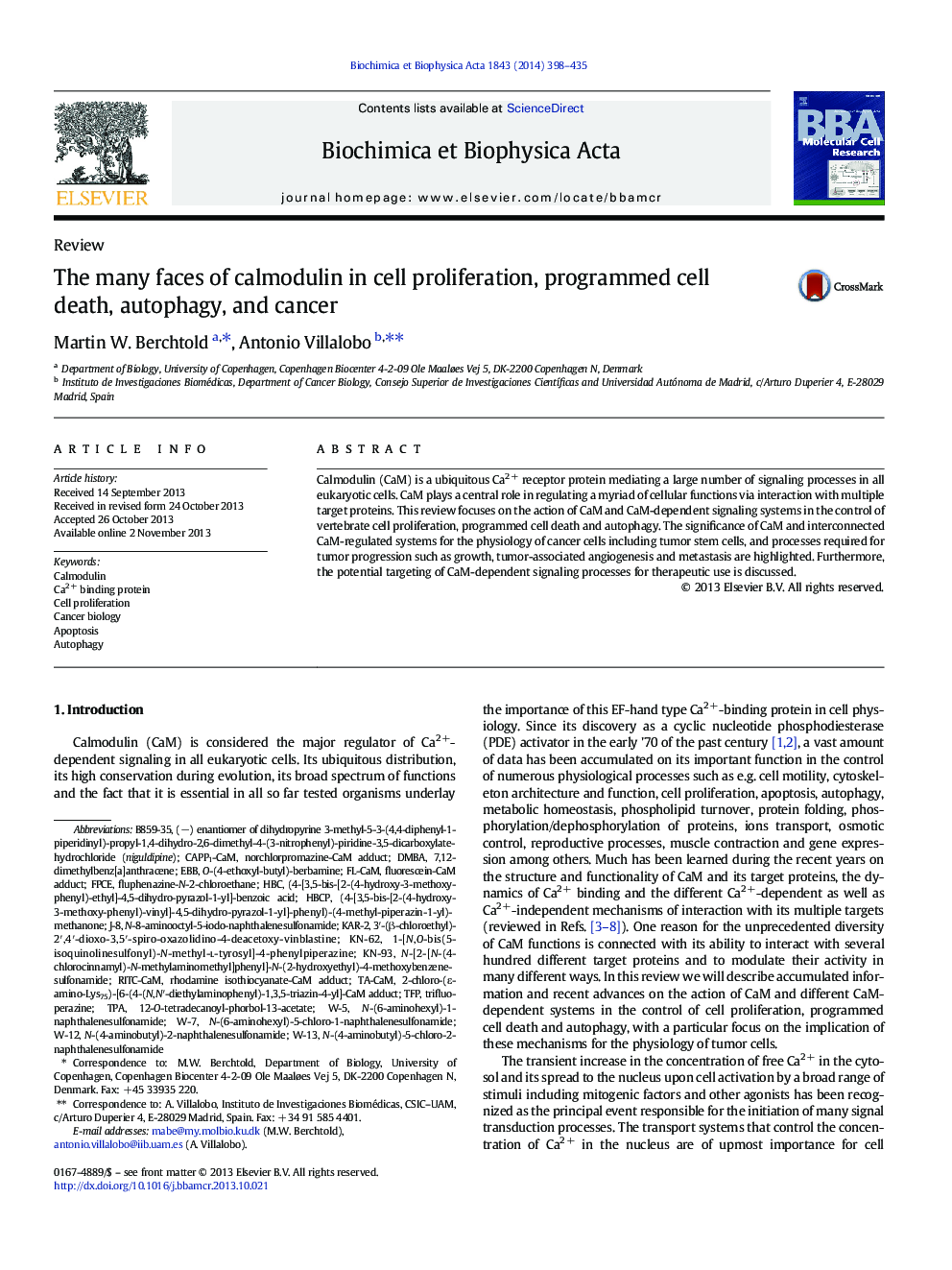| Article ID | Journal | Published Year | Pages | File Type |
|---|---|---|---|---|
| 10802199 | Biochimica et Biophysica Acta (BBA) - Molecular Cell Research | 2014 | 38 Pages |
Abstract
Calmodulin (CaM) is a ubiquitous Ca2Â + receptor protein mediating a large number of signaling processes in all eukaryotic cells. CaM plays a central role in regulating a myriad of cellular functions via interaction with multiple target proteins. This review focuses on the action of CaM and CaM-dependent signaling systems in the control of vertebrate cell proliferation, programmed cell death and autophagy. The significance of CaM and interconnected CaM-regulated systems for the physiology of cancer cells including tumor stem cells, and processes required for tumor progression such as growth, tumor-associated angiogenesis and metastasis are highlighted. Furthermore, the potential targeting of CaM-dependent signaling processes for therapeutic use is discussed.
Keywords
EBBN-(4-aminobutyl)-5-chloro-2-naphthalenesulfonamideW-13N-(6-aminohexyl)-1-naphthalenesulfonamide12-O-tetradecanoyl-phorbol-13-acetateW-5W-7TFPHBCKN-93KN-62DMBAtPA7,12-Dimethylbenz[a]anthraceneN-(6-aminohexyl)-5-chloro-1-naphthalenesulfonamideAutophagyTrifluoperazineCell proliferationApoptosisCancer biologyCalmodulin
Related Topics
Life Sciences
Biochemistry, Genetics and Molecular Biology
Biochemistry
Authors
Martin W. Berchtold, Antonio Villalobo,
